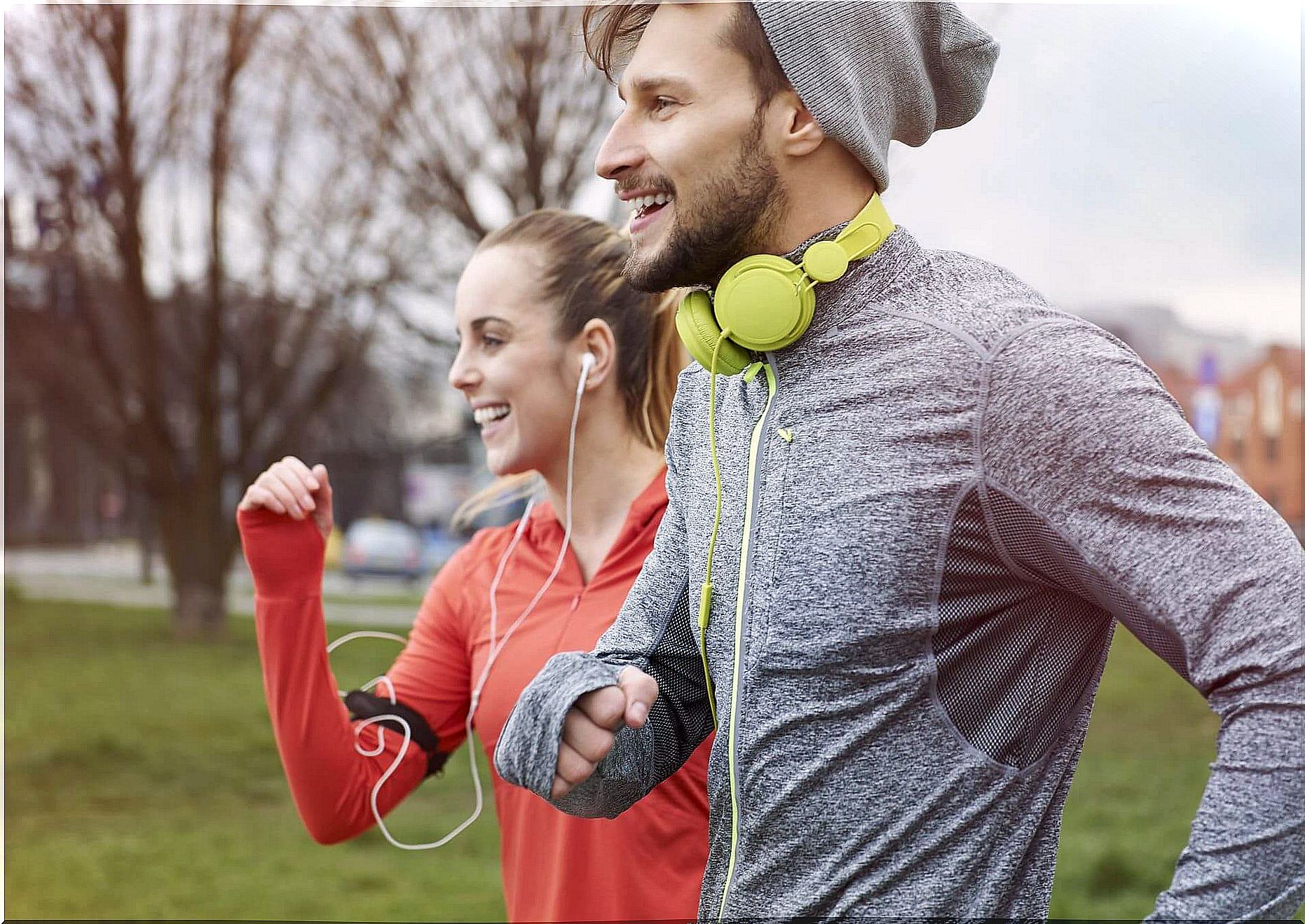Physical Exercise Makes Us Happier Than Money, According To A Study

Physical exercise and well-being: how are they related? Do you think sport brings you happiness? If they asked you right now, what do you think makes you happier, money or sports? What would you answer?
Research from the Universities of Yale and Oxford has tried to shed light on this question through a cross-sectional study with a sample of 1.2 million American participants. Nothing more and nothing less.
Research determines that regular sport affects positively, above what a very advantageous economic position can do. Find out more about this interesting study!
Physical exercise makes us happier than money, according to a study
Sport makes us happier than money ; This is confirmed by a study carried out by researchers at Yale and Oxford Universities and published in The Lancet Psychiatry . The study, which analyzed the mental health of participants between 2011 and 2015, involved more than a million Americans.
Specifically, it was intended to analyze the relationship between mental health and the practice of physical exercise. In the study, the participants counted how many times they had felt bad emotionally in the last month, either due to stress, emotional problems … And what did the researchers find?
That in people who practiced physical exercise regularly, the number of times they had felt bad was significantly lower, compared to people who did not practice sports. In addition, these people felt happier than those who had more income, but who did not practice physical exercise.
Another piece of information: according to the study’s findings, the level of happiness is not proportional to the amount of sport practiced, although this does influence our mental health in a positive way.

Happiness based on sport
The researchers also reached other conclusions: depending on the sport, the impact on mental health varies. Thus, in popular team sports, or where socializing is required, the impact is even greater.
Followed by team sports, other types of sports that produce more well-being are cycling, aerobic activities and gym activities.
Well-being based on income
The researchers also compared the participants’ reported degree of well-being based on their income. And they came to the following conclusion: physically active people feel as good as those who do not play sports, but they earn $25,000 more a year (the equivalent of € 22,000).
In other words: those who earn 1,800 euros more per month are just as happy, even if they don’t play sports. As we can see, the relationship between money, physical exercise and well-being is by no means linear.
Physical exercise and well-being: the importance of moderate sport
Another conclusion reached by the researchers was the following: sport is beneficial for our mental health and offers us a good dose of happiness and well-being, but it has to be moderate. Thus, excessive physical exercise would be counterproductive.
And this is demonstrated by the findings: the participants who practiced excessive physical exercise (more than recommended) felt as unhappy as those who did not participate in sports. And, according to the study, the “ideal” for our mental health would be to do sports between 3 and 5 times a week (with sessions of between 30 and 60 minutes).
Along the same lines, we find another study, published in the scientific journal Current Biology in 2019 and led by Bastien Blain, which states that excessive physical exercise induces cognitive fatigue similar to that caused by excessive intellectual work.
Emotional benefits of physical exercise
We have seen how physical exercise and well-being are related, and it is that the former can lead to the latter. But, specifically, how does sport benefit us on a mental or emotional level? Among the great benefits of practicing sports for emotional health we find the following:
- Prevents and reduces anxiety and stress.
- It induces states of relaxation.
- It allows us to develop self-esteem through self-knowledge.
- Provide routine and organization.
- It helps us to work, indirectly, cognitive skills such as attention or memory.
- It increases our discipline, which allows us to overcome challenges and challenges.
Do not forget that, when you play sports, you release endorphins, neurotransmitters, hormones and various chemicals that induce a state of relaxation and pleasure.
This is why sport is so beneficial in preventing (and addressing) anxiety and stress states. Also to combat apathetic states so typical of depression, since sport activates us physically and mentally.

Sport helps to disconnect
As we can see, physical exercise and well-being are two concepts that go hand in hand. Regardless of whether sport brings us more or less satisfaction or well-being than money, what is undeniable is that sport helps us to disconnect and take care of our physical and mental health.
Therefore, if you feel anxious or excessively stressed, or if you want to fight against apathy, go for sports! You don’t have to adopt a very demanding routine; Sometimes you just have to go for a brisk walk once a week to start and gradually increase your activity.









